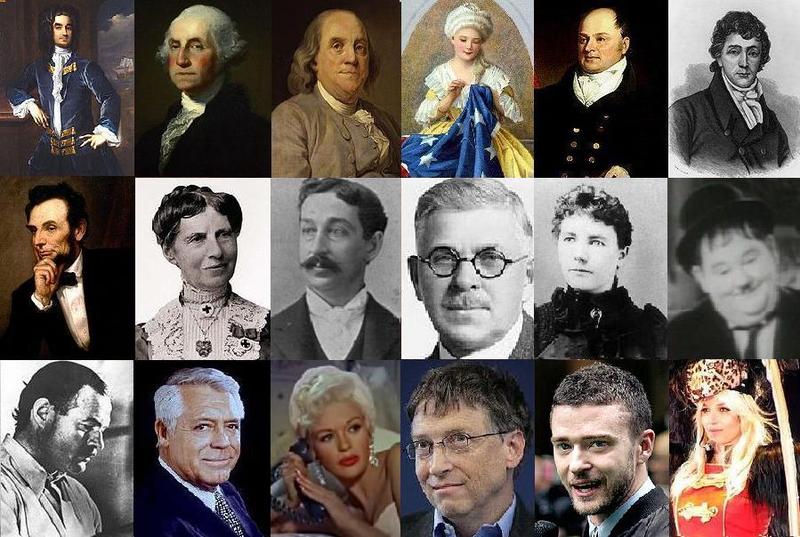 The NYPR Archive Collections
The NYPR Archive Collections
Episode 2 Our English Heritage

From the Department of the Interior, Office of Education study guide:
OUR ENGLISH HERITAGE
It was the English who shaped the molds into which the life of this country was first poured.—FRANCIS J. BROWN and Joseph S. Roucek.
English efforts to colonize North America during the sixteenth century failed. They did not succeed until Jamestown, Virginia, was founded in 1607 and the Pilgrims had landed and settled in Massachusetts in 1620. From this time on, the English founded colony after colony until they had settled almost the entire Atlantic seaboard.
Who Came?
To New England came the Puritans, most of whom belonged to the English middle classes—farmers, merchants, and skilled workers. To Virginia and the Carolinas came the planters, many of whom belonged to the English upper classes. There were also middle-class people like those who had settled in New England. Still others came or were forced to come, such as the bondsmen or indentured servants. They had to labor for a number of years to pay for their passage across the Atlantic before they could be free. These men were chiefly down-and-outers or criminals looking for a chance to make a fresh start in life. For a long time, the English people had enjoyed the benefits of representative government. Therefore, the Colonists, when they settled in this country, were determined to rule themselves according to the "expressed common will." Again and again, up to and after the Revolutionary War, they demanded the same rights and liberties for which their English ancestors had fought and died.
Our Great Freedoms.
A large number of the colonists had come because they wanted freedom of religion and freedom of speech. Yet they were not always ready to grant these rights to others. For this reason, Roger Williams, our first champion of religious tolerance, left Massachusetts and founded Rhode Island. Freedom of the press was another freedom fiercely fought for. Peter Zenger, founder of the New York Weekly Journal, was imprisoned by Governor Cosby of New York in 1735 because Zenger had dared to oppose him in his paper. By winning his court fight against Cosby, Zenger struck the first great blow for the freedom of the press. - The settlers did not always get along with each other. There were Puritans in New England, Catholics in Maryland, Baptists in Rhode Island, Quakers in Pennsylvania, and Episcopalians and Presbyterians in the Carolinas. There were jealousies, quarrels about land, and opposition to new settlers. Yet, beneath it all, there were common bonds—bonds that were to lay the democratic foundations of our nation.
With the close of the Revolutionary War, the chapter of early immigration came to an end. The different groups in the United States were already being absorbed and united into one nation. This is borne out by Washington who, in his Farewell Address, said: "With slight shades of differences, you have the same religion, manners, habits, and political principles." Up to this time, more than 90 per cent of the immigrants had come from the British Isles. The remaining ten per cent were Germans, Netherlanders, Negroes, and people from a score of other countries. Before the War of 1776, the English had come here for many reasons. After the War, they came because industrial development in England deprived them of their jobs while industrial development in the United States gave them new and better jobs.
English Gifts.
Many races and groups have contributed to the customs and life of the United States. But, for the framework that upholds our national life, the basic principles supporting our democracy—we are indebted to the English. From them we got our language, our basic laws, and rich experiences in self-government. From them we got the beginnings of our educational system, the form and spirit of our literature, and the tendency to solve vexing problems by "parleying." From them, too, we got many other gifts, including landscaping, architecture, folk song, dance, and drama. Our labor unions were organized on the English plan. To the English, we are indebted for the beginnings of our Y.M.C.A. and Salvation Army. They gave us such games as croquet, tennis, polo, and badminton. Baseball is an adaptation of the English "rounders," and our football was developed from the English "rugby" game. It was the English who laid the cornerstones of our democracy and the form of our early life. However, men and women, drawn from the four corners of the world, have developed and shaped it into its present form. It is not a completed, fixed pattern. It is an ever-growing process that absorbs the best features brought by the various groups which have become a part of American life.
WNYC archives id: 125538